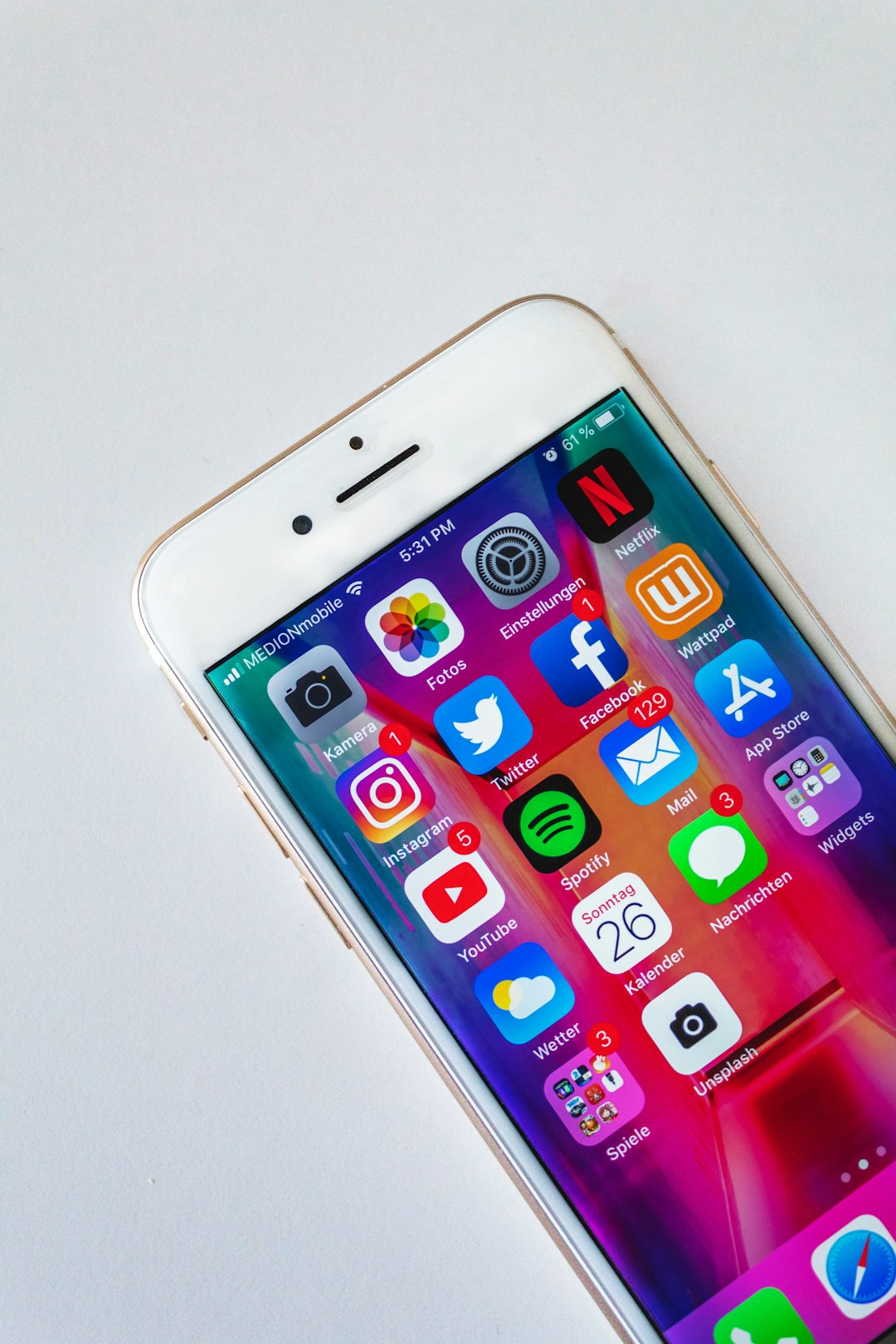Digital conversations shape everything from business deals to personal milestones, the ability to preserve, access, and organize those messages isn’t just a nice-to-have — it’s essential. iMessage, Apple’s beloved messaging service, sits at the center of this reality for millions of users. But here’s the kicker: Apple still doesn’t offer a native feature to archive your iMessages.
As someone who works with privacy-conscious professionals, creators, and consultants, I believe this gap is more than an oversight, it’s a missed opportunity for digital empowerment. And while Apple leaves us hanging, we do have smart, alternative ways to take back control. But even more, archiving iMessages can be your entry point to an entire system of organizing and future-proofing your digital life.
Let’s dive deep into the best ways to archive iMessages, explore tools that help manage personal and professional data across industries, and uncover why 2025 is the year you need to take your digital records seriously.
Why Archive iMessages at All?
If you’re asking, “Why should I bother archiving my iMessages?”, you’re not alone. But the answer depends on who you are—and what’s at stake if you lose them.
Here’s what you’re actually protecting:
- Personal memories: Conversations with loved ones, saved media, or voice notes you can’t replace.
- Business records: Agreements, creative brainstorms, or client communications that might be needed for audits or compliance.
- Legal protection: Especially in industries like finance or healthcare, where message records might be subject to discovery.
- Storage optimization: Clearing up your phone without losing valuable data.
As digital strategist Lauren Klein, who advises tech startups on privacy infrastructure, puts it:
“Data retention is no longer optional—it’s a form of resilience. You don’t know when a deleted message becomes your most important one.”
Apple’s “Archiving” Black Hole: What You Need to Know
Despite its user-friendly ecosystem, Apple makes archiving your iMessages… well, clunky at best. There’s iCloud backup, but that’s more of a restore mechanism than an archive—it’s not searchable or easily extractable. Local backups via Finder or iTunes face the same limitation: all-or-nothing recovery.
So what’s missing?
- No native way to export specific conversations
- No built-in search across archived messages
- No granular or automated message management
- No direct support for legal compliance or documentation needs
This lack of functionality has given rise to third-party tools, and a market ready for disruption.
The Best (Current) Ways to Archive iMessages
 If Apple won’t help you, third-party solutions will. Here are a few ways users and professionals get around the archiving issue:
If Apple won’t help you, third-party solutions will. Here are a few ways users and professionals get around the archiving issue:
1. Use third-party software
To achieve iMessage compliance recording, organizations often turn to third-party tools that can export conversations to PDF or text formats, typically including timestamps and media. Solutions like Jatheon, TeleMessage, and PageFreezer are designed for compliance archiving and monitoring.
- Pros: Searchable, shareable, can be scheduled.
- Cons: Paid software, setup required, limited Apple support.
2. Manual Screenshots
Yes, it’s the old-school method—but still used by freelancers and lawyers for quick documentation.
- Pros: Easy, visual.
- Cons: Tedious, not scalable, no text search.
3. Export via Mac Terminal (for developers)
Advanced users can technically access message databases on Mac and extract data.
- Pros: Full control, customizable.
- Cons: Risky, requires technical skill, no interface.
Beyond iMessage: A Digital Strategy for Communication Archiving
Team Collaboration: Turning Chats into Shared Knowledge
In team-based environments, valuable insights often get buried in group chats and direct messages. Archiving these conversations transforms fleeting interactions into lasting, searchable knowledge. When paired with tools like Notion or Confluence, teams can extract action items, decisions, or lessons learned and centralize them for future access. This approach not only reduces miscommunication but also creates a shared brain for the organization,where every message contributes to continuous improvement.
Marketing: Syncing Message Archives with Campaign Data
In modern marketing, conversations are just as valuable as campaign results. Every campaign revision, client approval, or real-time adjustment often happens in a messaging app. While archiving those iMessages is important for accountability, it’s even more powerful when paired with performance data. One smart move marketers are making is integrating Google Ads to BigQuery pipelines. This lets teams consolidate ad data alongside communications, creating a traceable thread from idea to impact. Imagine revisiting a campaign and being able to match feedback messages with performance spikes, that’s data fluency.
Customer Support: Using Archived Messages to Improve Service
Customer support teams rely heavily on messaging for real-time problem solving. Archiving these interactions isn’t just about record-keeping, it’s a feedback goldmine. By analyzing trends in archived conversations, companies can proactively address recurring issues, improve FAQ content, or fine-tune product features. Companies are increasingly discovering that these archived communication patterns can feed into data monetization services, turning internal insights into valuable market intelligence. Integration with CRM tools can even trigger automated responses or training flags when certain keywords are detected, turning past conversations into engines for smarter, faster service.
Consulting: Building Accountability with Clear Data Trails
In consulting, the paper trail is a professional necessity. Archiving iMessages is key when dealing with client feedback, change requests, or ongoing support discussions. But keeping everything organized doesn’t stop there. Often, communication is only one part of a larger equation that includes reporting, financial planning, or KPIs. That’s why working with an Excel expert can elevate your operational workflow. They can help you tie archived messages to actual project deliverables, creating systems where qualitative feedback and quantitative results coexist seamlessly.
“The ability to present a clean archive of your process, including messages and drafts, gives you a professional edge,” notes Jenny Arndt, a career branding coach for freelancers.
Personal Branding: Pairing Identity with Archived Communication
 Freelancers and solopreneurs know that first impressions are often digital. And a great visual identity is part of the package. While archiving client chats shows reliability, the way you present yourself matters, too. Tools like an AI headshot generator give users the ability to create high-quality, professional portraits without expensive photo shoots. Paired with message archives and client feedback, it reinforces your credibility — you’re someone who documents, delivers, and looks the part.
Freelancers and solopreneurs know that first impressions are often digital. And a great visual identity is part of the package. While archiving client chats shows reliability, the way you present yourself matters, too. Tools like an AI headshot generator give users the ability to create high-quality, professional portraits without expensive photo shoots. Paired with message archives and client feedback, it reinforces your credibility — you’re someone who documents, delivers, and looks the part.
Automating the Bigger Picture: How to Scale Communication Tracking
Content Creation: Leveraging Archived Conversations for New Ideas
Archived iMessages are treasure troves of ideas — brainstorms, Q&As, even complaints can spark valuable content. But starting from scratch every time isn’t scalable. That’s where creative aids like a title generator become useful. Instead of staring at a blank screen, you can use the themes in your archived conversations as prompts, then generate titles or headlines to shape full blog posts, newsletters, or product pages.
Strategic Planning: Organizing Past Dialogues for Future Projects
Archived messages are not just for looking back, they’re strategic assets for looking forward. Teams that revisit old chats often uncover missed opportunities, repeated issues, or underused insights. When structured correctly, these archives act as informal knowledge bases. By connecting this data to other systems — whether spreadsheets, analytics tools, or CRM platforms — professionals can elevate routine message archiving into a decision-making engine.
Feedback and Research: Automating Data from Conversations
If you’ve ever tried to compile qualitative data from scattered messages, you know how frustrating it can be. That’s why automation is your best friend. Instead of manually copying text into documents, many professionals now use survey tools to structure feedback more efficiently. Tools like creating a survey link simplify this process, letting you turn follow-up conversations into clean, analyzable responses. It’s one more way to scale message-based interactions into organized insights.
Compliance and Documentation: Automating for Audit-Readiness
Finally, for professionals in regulated industries like finance or healthcare, archiving isn’t optional — it’s legally required. Manual methods may work for a while, but they won’t hold up in audits. That’s why enterprise-grade solutions built specifically for iMessage compliance recording exist. These systems automate the process of capturing, storing, and categorizing conversations while staying in line with legal standards. It’s a layer of protection no business should ignore.
Coaching and Creative Work: Documenting Moments of Transformation
For life coaches, writers, and creatives, conversations often contain breakthrough moments — insights you want to preserve, revisit, or reflect on. Message archiving allows those moments to be retained with integrity. But personal growth is also about evolving perspectives. That’s why content like transforming challenges into opportunities resonates. It reminds us that archived conversations aren’t just data, they’re snapshots of change, reminders of where we were and how far we’ve come.
What About Privacy and Legal Concerns?
Privacy-aware users are right to ask: “What happens to my messages when I use third-party tools?”
- Stick with apps that don’t store data on external servers.
- Ensure that end-to-end encryption remains intact (or know when it doesn’t).
- Ask whether the tool complies with GDPR or HIPAA, especially for professional use.
For industries that require compliance recording (like finance or healthcare), be sure to check solutions built for compliance recording. They’re not for everyone, but essential for businesses under regulation.
Final Thoughts: Your Messages Are Part of Your Legacy
Whether you’re a small business owner, consultant, creator, or simply a memory-keeper—your messages matter. And in a time when data can be lost, hacked, or simply misplaced, archiving isn’t paranoia—it’s preparation.
Just like you’d backup your photos or financial records, treat your digital conversations with the same level of care.
“Your digital conversations reflect your decisions, creativity, and relationships. Preserving them is like preserving a part of your story,” says Arman Joshi, digital archiving researcher at NYU.
So yes, the iMessage archiving gap is real. But in 2025, with a bit of strategy, you can build something even better.
FAQ
Can I archive iMessages directly from my iPhone?
No, Apple does not currently offer a native archiving feature on iPhone. You can back up messages via iCloud or manually export them using third-party tools.
Are third-party archiving tools safe?
Many are, but only if you choose reputable vendors. Look for apps that process data locally and don’t upload your messages to external servers.
Is archiving necessary for personal use?
Yes—especially if your messages include valuable photos, memories, or voice notes that aren’t stored elsewhere.
What’s the best tool to export iMessages?
Apps like iMazing and AnyTrans are popular, user-friendly tools for exporting conversations in readable formats like PDF or TXT.
What industries most need to archive iMessages?
- Finance (for compliance)
- Healthcare (for patient record-keeping)
- Legal services (for evidence)
- Marketing and consulting (for documentation and strategy)



